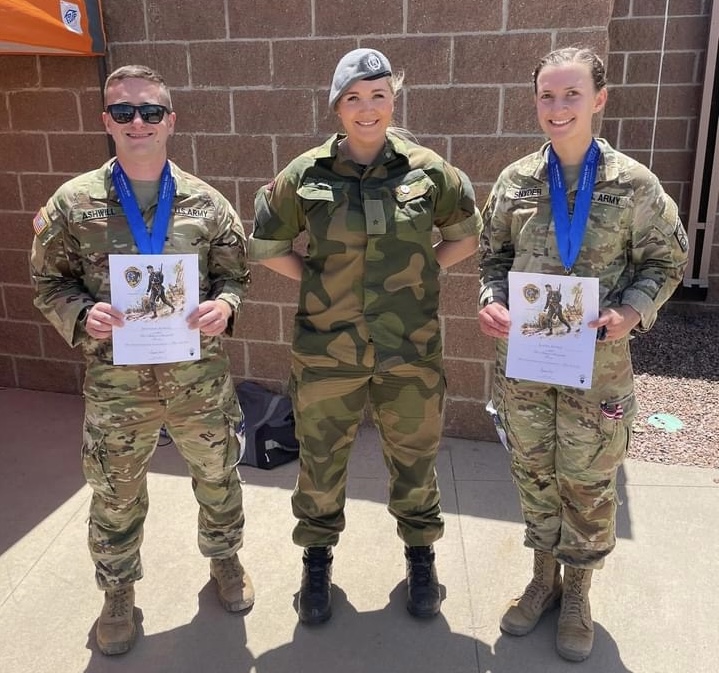Kansas State University Army ROTC Training
AIRBORNE TRAINING
Becoming a paratrooper at Airborne School is a unique experience requiring special dedication and a desire to be challenged mentally and physically. This three-week course, also known as Basic Airborne Course (BAC), teaches Soldiers the techniques involved in parachuting from airplanes and landing safely. The final test includes a non-assisted jump.
The purpose of the BAC is to qualify the volunteer in the use of the parachute as a means of combat deployment and to develop leadership, self-confidence, and an aggressive spirit through mental and physical conditioning.
Airborne Soldiers have a long and distinguished tradition of being an elite body of fighting men and women–people who have always set the example for determination and courage. When you volunteer for this training, you accept the challenge of continuing this tradition. The Airborne Soldiers of the past set high standards–it is now up to you to maintain them! Airborne school At Fort Benning.

Photo: Cadet Weiner completing Airborne school.
AIR ASSAULT TRAINING
U.S. Army Air Assault School is a two-week (10 days) course of instruction conducted at several locations across the Army, including Fort Campbell, Kentucky; Fort Drum, New York; Camp Smith, West Point; and at overseas locations in Germany and Hawaii. In each case, the course of instruction is focused on Combat Assault Operations involving U.S. Army rotary-wing aircraft. Our battalion usually receives only one or two slots to Air Assault School each summer, which are open to both male and female Cadets meeting the requirements. Air Assault school at Fort Campbell.

Photo: Cadet Ehlers Completing Air Assault School.

Photo: Cadet Iles completing Air Assualt School.
CADET TROOP LEADER TRAINING (CTLT)
The Cadet Troop Leader Training (CTLT) provides Cadets the opportunity to experience leadership in Army units over a three to four week period over the summer. Cadets serve in Lieutenant level leadership positions in active duty units. Platoon Leader positions have a 3-4 week duration depending on the hosting unit and location. Assignments include units that are located CONUS and OCONUS. Cadets are assigned a unit mentor, and are provided on-post lodging and meals via a Dining Facility. This program is exclusively designed for MSIII Cadets before and after completion of Cadet Summer Training.

Photo: Cadet Snyder inserting an IV at Ft Bragg
HELICOPTER ORIENTATION
Participate in one of the Wildcat Battalion's field exercises and experience what it feels like to ride in one of the Army's most advanced helicopters, the UH-60 Blackhawk.

Photo: Cadet Sundblum riding in a Blackhawk
NORWEGIAN FOOT MARCH
The Norwegian Foot March is a Norwegian armed forces skill badge which is earned when participants complete an 18.6 mile (30km) ruck march while carrying 25 pounds in their rucksacks. Particpants recieve a foreign military "Marsjmerket" badge upon completion.

Photo: Cadet Ashwill and Cadet Snyder earning their Norwegian Foot March Badge